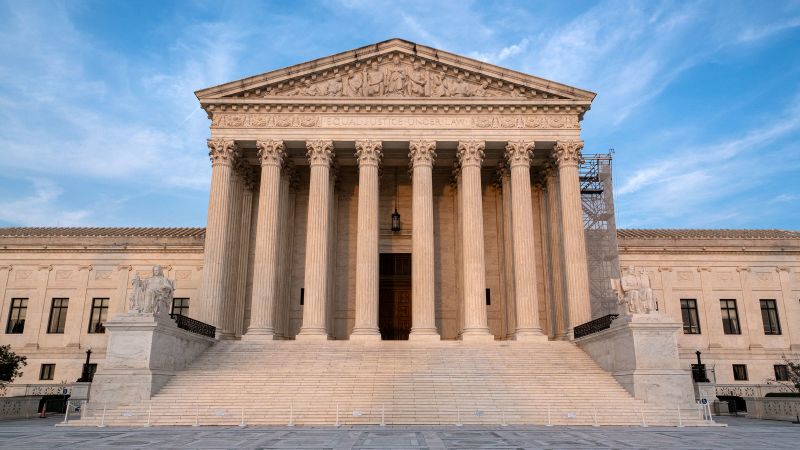
President Donald Trump has long been vocal about his desire to end birthright citizenship, and on his first day back in office he signed an executive order that sought to do just that.
Now the Supreme Court will hear arguments about whether Trump can enforce that order through most of the country.
Arguments in the court will begin shortly after 10 a.m. ET.
Trump’s order, titled “Protecting the Meaning and Value of American Citizenship,” barred the federal government from issuing “documents recognizing United States citizenship” to any child born on American soil to parents who were in the country unlawfully or were in the states lawfully but temporarily.
The move was quickly met with several legal challenges in states around the country, and in the three cases before the high court on Thursday, federal judges issued rulings indefinitely blocking enforcement of the order, which each of the judges concluded was likely unlawful.
The issue before the Supreme Court is whether the courts overstepped their authority by issuing nationwide injunctions that applied to everyone, not just the states, groups and individuals who sued.
But while the merits of Trump’s order is not before the court, a ruling for Trump would allow him to enforce a policy that critics say clearly conflicts with the 14th Amendment’s citizenship clause, which was added to the Constitution after the Civil War to extend US citizenship to newly freed slaves.
One of the judges who ruled against Trump, Deborah Boardman of the federal district court in Maryland, said in February that the order “conflicts with the plain language of the 14th Amendment, contradicts 125-year-old binding Supreme Court precedent and runs counter to our nation’s 250-year history of citizenship by birth.”
Federal appeals courts in Boston, Richmond and San Francisco turned down requests to lift or narrow the injunctions, leading his administration to appeal to the justices on an emergency basis.
Though the high court won’t be deciding now whether Trump can end birthright citizenship, part of their analysis for why he should or should not be able to partially or fully implement the executive order will rest on how likely they think he is to prevail during a later stage in the litigation.



